Exploring the Versatility of Custom Cargo Containers: Innovative Uses for Modern Transport Needs
The rise of globalization has significantly transformed the logistics and transportation industry, leading to an increased demand for efficient and adaptable solutions. In this context, custom cargo containers have emerged as a vital tool for meeting modern transport needs. According to a report by MarketsandMarkets, the global shipping container market is projected to reach USD 9.5 billion by 2027, growing at a CAGR of 7.6%. This growth underscores the importance of innovative applications for custom cargo containers beyond traditional shipping roles.
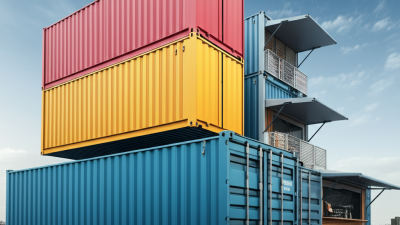
From mobile offices to pop-up retail spaces, these versatile units are being reimagined to support diverse industries, reflecting a shift towards more sustainable and multifunctional transport solutions. Ultimately, the adaptability of custom cargo containers is set to play a crucial role in enhancing operational efficiencies and responding to the evolving demands of global trade.
Innovative Applications of Custom Cargo Containers in Urban Development
The urban development landscape is rapidly evolving, with custom cargo containers emerging as a versatile solution for diverse needs. Their innovative applications are particularly significant in cities striving to enhance transport efficiency and sustainability. For instance, these containers can be repurposed into pop-up shops, community centers, or even living spaces, promoting economic activity and social interaction in urban areas. This transformation aligns with broader urban planning initiatives, such as those seen in Shenzhen's comprehensive transportation plans for the next five years, emphasizing the importance of adaptive reuse in urban infrastructure.
Additionally, recent accolades awarded for exemplary green design showcase how custom cargo containers contribute to environmentally friendly practices. As cities prioritize green building strategies, these containers' durability and recyclability make them ideal for constructing modular units that reduce construction waste. The integration of such innovations not only addresses urbanization challenges but also supports the creation of logistic centers that enhance connectivity and operational efficiency within metropolitan areas. Thus, the versatility of custom cargo containers plays a pivotal role in shaping the future of urban development.
Transforming Cargo Containers into Eco-Friendly Tiny Homes
The trend of transforming cargo containers into eco-friendly tiny homes is gaining momentum as more individuals seek sustainable living solutions. These versatile structures offer a unique approach to housing, utilizing repurposed materials that significantly reduce construction waste. Moreover, the inherent durability of cargo containers makes them an excellent choice for innovative home designs, providing a sturdy framework that can withstand various environmental challenges.
Beyond their resilience, eco-friendly tiny homes made from cargo containers present significant financial advantages. They typically require less investment compared to traditional homes, making them accessible options for first-time homeowners or those looking to downsize. Additionally, the small footprint encourages minimalist living, promoting a lifestyle that values experiences over material possessions. With the incorporation of renewable energy sources and efficient insulation, these homes can achieve high energy efficiency, further reinforcing their appeal in today's environmentally conscious society.
Exploring the Versatility of Custom Cargo Containers
Utilizing Cargo Containers for Pop-Up Shops and Mobile Businesses
The rise of pop-up shops and mobile businesses is revolutionizing the retail landscape, showcasing the adaptability of custom cargo containers. These versatile structures provide a unique solution for entrepreneurs looking to establish temporary retail spaces without the overhead costs associated with traditional brick-and-mortar locations. Recent innovations have seen shipping containers transformed into stylish pop-up shops that can swiftly adapt to various markets and attract new customers in unconventional spaces.
In cities across the country, repurposed cargo containers are becoming increasingly popular as platforms for small businesses. Whether it's a mobile service point that operates off-grid or a collective retail venture that hosts multiple small brands, these containers offer not just mobility but also the potential for creative designs that resonate with modern consumers. By harnessing the strength and portability of shipping containers, businesses can create engaging retail experiences that cater to the needs of underserved markets, all while promoting sustainability and economic growth within the community.
Creative Design Ideas for Container-Based Offices and Workspaces
The shift towards container-based offices reflects a growing trend that prioritizes flexibility, sustainability, and employee wellness. These innovative workspaces, constructed from repurposed shipping containers, provide a fresh solution to modern transport and office needs. With designs that often incorporate outdoor elements and open layouts, container offices can create an inspiring environment where creativity flourishes. Architects are increasingly harnessing the versatility of these structures to create multifunctional spaces that not only serve as work environments but also promote collaboration and a healthy work-life balance.
Moreover, the appeal of container offices lies in their eco-friendly credentials and efficient use of resources. By utilizing existing shipping containers, businesses can significantly reduce their environmental footprint while creating aesthetically pleasing workplaces. Concepts such as stacked container designs and movable layouts open up a myriad of possibilities for tailored office solutions. As organizations seek innovative ways to enhance employee satisfaction and productivity, the incorporation of these unique workspaces into urban designs will likely continue to grow, showcasing the limitless potential of custom cargo containers in the modern world.
Exploring the Versatility of Custom Cargo Containers: Innovative Uses for Modern Transport Needs
| Use Case | Description | Advantages | Estimated Cost ($) |
|---|---|---|---|
| Office Space | Converted shipping containers into functional office spaces with workstations. | Cost-effective, portable, and customizable design. | 10,000 - 30,000 |
| Pop-up Retail | Using containers as mobile retail shops for seasonal events. | High visibility and mobility; can be relocated easily. | 5,000 - 15,000 |
| Workshop | Workspaces for craftsmen, artists, or mechanical repairs. | Durable and weather-resistant; secure storage for tools. | 8,000 - 20,000 |
| Residential Units | Converting containers into compact living spaces. | Sustainable living option; innovative and modern aesthetic. | 25,000 - 50,000 |
| Storage Solutions | Using containers for extra storage facilities. | Secure and weatherproof; cost-effective long-term storage. | 1,500 - 3,000 |
Cargo Container Solutions for Disaster Relief and Emergency Housing
The innovative use of cargo containers has gained significant traction in recent years, particularly in disaster relief and emergency housing. According to a report by the United Nations, over 80% of the world's population live in areas susceptible to natural disasters, making efficient and effective disaster response crucial.
Custom cargo containers offer a rapid and flexible solution for addressing immediate housing needs following catastrophic events. These containers can be quickly transported to affected regions and retrofitted to serve as temporary shelters, ensuring that displaced individuals have a safe place to stay while longer-term solutions are established.
In addition to their usability in emergency situations, cargo containers are recognized for their durability and low cost. The International Organization for Migration projects that constructing emergency shelters using cargo containers can reduce costs by up to 75% compared to traditional building methods. Furthermore, these containers are designed to withstand various environmental conditions, making them ideal for both urban and rural settings. As governments and NGOs seek innovative solutions to homelessness stemming from disasters, the versatility of custom cargo containers presents a scalable option that meets both immediate needs and long-term recovery goals.
Related Posts
-
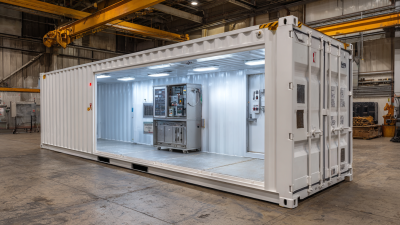
Unlocking the Potential: Innovative Uses for Specialty Shipping Containers in Modern Industries
-

Revolutionizing Modern Architecture: The Rise of Cargo Container Construction in Sustainable Living
-
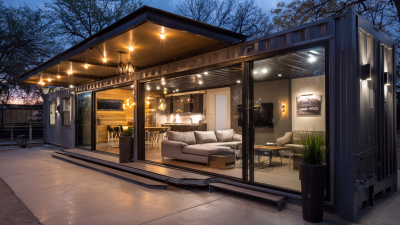
Transforming Spaces: The Versatile Benefits of Custom Built Shipping Containers in Modern Architecture
-
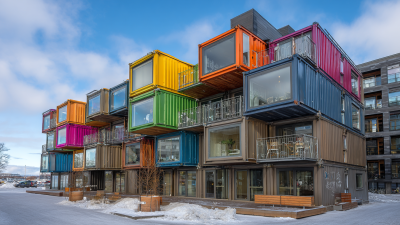
Innovative Cargo Container Buildings Transforming Urban Living Spaces
-
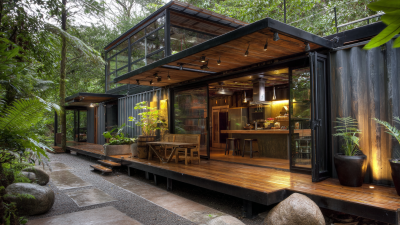
Innovative Design Ideas for Sustainable Living with Freight Container Homes
-
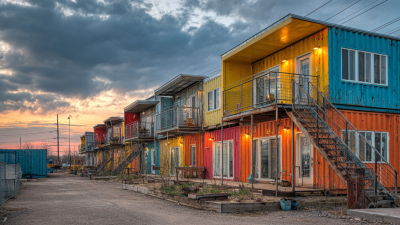
Transforming Lives: How Freight Container Homes Can Reduce Housing Costs by 30% in Urban Areas

